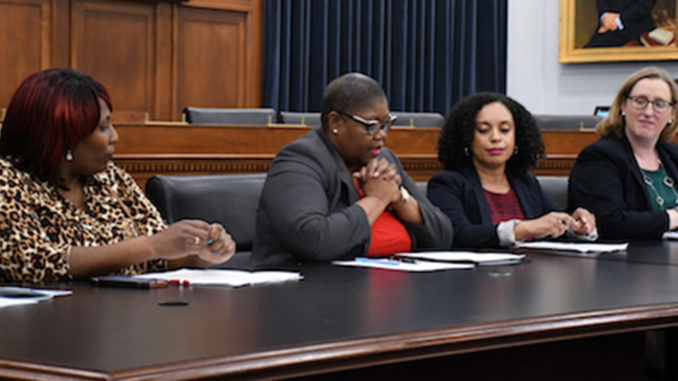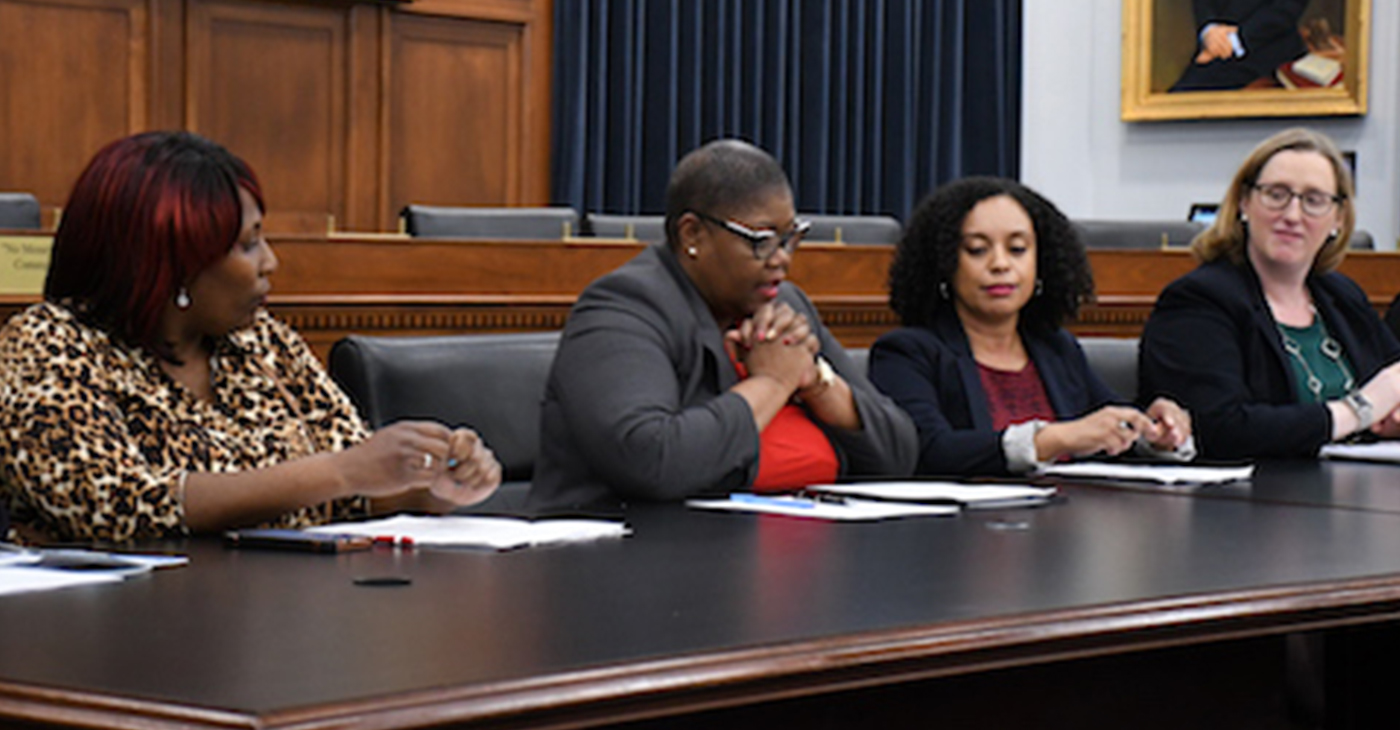
A national family and medical paid leave program must be passed by Congress to ensure all American workers can care for their families without worrying about jeopardizing their income, according to officials at The Leadership Conference for Civil and Human Rights, a District-based coalition of more than 200 national organizations that work to promote and protect the civil and human rights of all in the United States.
Leadership Conference officials joined others at a Tri-Caucus briefing on the importance of paid family and medical leave at the federal level to achieve racial justice.
A panel experts at the June 5 gathering at the Rayburn House Office Building on Capitol Hill discussed a wide range of topics, most notably the current federal and state landscape of family and medical leave with a special focus on how the Family Act will make vital improvements for people of color.
The gathering was co-sponsored by the Lawyers’ Committee for Civil Rights Under Law, National Partnership for Women & Families, Black Women’s Roundtable, Family Values at Work, UnidosUS, United for Respect, and the Asian Pacific American Labor Alliance in conjunction with the Congressional Black Caucus, Congressional Asian Pacific American Caucus, and Congressional Hispanic Caucus.
“We believe passage of the Family Act is key for Black women and men to achieve economic security and prosperity,” said event moderator Melanie Campbell, who serves as president and CEO of the National Coalition on Black Civic Participation and convener of the Black Women’s Roundtable.
“As a program that ensures that people can take time from work when they need it to care for themselves and family, the Family Act speaks directly to the needs of Black women and their families because three out of four Black women — 75 percent — are the primary source of income in their family units,” Campbell said. “Also, nearly 30 percent of Black family caregivers are young family members between the ages 18 to 34 and who earn less than $30,000 annually.”
Earlier this month, Connecticut became just the seventh state to create a system of paid leave. Under the new law, minimum wage employees could have up to 95 percent of their pay covered, capped at $900 per week.
New York’s recently-passed paid leave policy offers only a 55 percent wage replacement, which will increase to 67 percent when the law is fully implemented.
“Paid leave is a critical step forward for women’s economic security, especially for low-wage workers and women of color who are an increasing number of primary breadwinners for their families,” Catherine Bailey of the Connecticut Women’s Education and Legal Fund told the Connecticut Mirror. “We are proud to join the rest of the world and become just the seventh state in the U.S. to create a system of paid leave.”
The need for all states to create a substantial family leave law is underscored by a recent Harvard University report.
“Following decades of decline, maternal deaths began to rise in the United States around 1990 — a significant departure from the world’s other affluent countries,” the report said. “By 2013, rates had more than doubled.”
The CDC now estimates that 700 to 900 new and expectant mothers die in the U.S. each year, and an additional 500,000 women experience life-threatening postpartum complications.
More than half of these deaths and near deaths are from preventable causes, and a disproportionate number of the women suffering are Black.
“Put simply, for Black women far more than for white women, giving birth can amount to a death sentence,” the Harvard report said. “African-American women are three to four times more likely to die during or after delivery than are white women. According to the World Health Organization, their odds of surviving childbirth are comparable to those of women in countries such as Mexico and Uzbekistan, where significant proportions of the population live in poverty.”


Be the first to comment